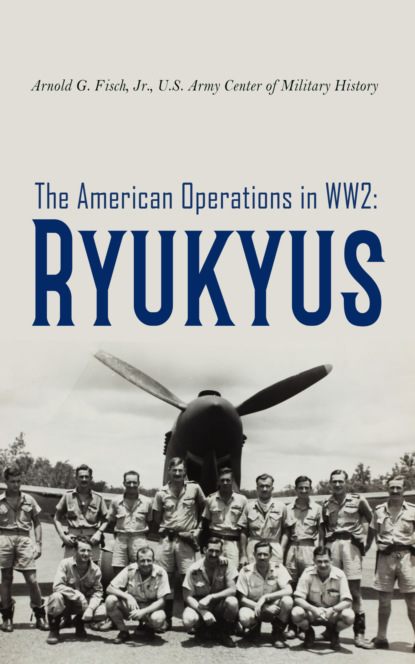Maht 33 lehekülge
0+
The American Operations in WW2: Ryukyus
Raamatust
World War II was the largest and most violent armed conflict in the history of mankind. Highly relevant today, World War II has much to teach us, not only about the profession of arms, but also about military preparedness, global strategy, and combined operations in the coalition war against fascism. This book follows military operations of the US Army in the Ryukyus, Japan from 26 March to 2 July 1945.
In late September 1944 the Joint Chiefs of Staff (JCS) in Washington decided to invade Okinawa, the largest island in the Ryukyu Islands, as part of a strategy to defeat Japan. The effort was code-named Operation ICEBERG. Okinawa had initially emerged as an objective in the spring of 1943, when the Allies believed that an invasion of the home islands might be necessary to force Tokyo's surrender. Possession of Okinawa would give the American forces additional, better-positioned air bases for intensifying the air campaign against the home islands and also provide important anchorages and staging areas for the huge, ambitious effort needed to invade Japan.
Beginning in late September 1944 American aircraft and submarines began to tighten a noose around the Ryukyus, making surface shipping extremely hazardous for the Japanese. Heavy bombers of the Fourteenth and Twentieth Air Forces and carrier planes from Admiral William F. Halsey's Third Fleet struck repeatedly at Japanese positions in the Philippines, Taiwan, and the Ryukyu Islands. On 29 September B-29 bombers conducted the initial reconnaissance mission over Okinawa and its outlying islands. On 10 October nearly two hundred of Admiral Halsey's planes struck Naha, Okinawa's capital and principal city, in five separate waves. The city was almost totally devastated. The American war against Japan was coming inexorably closer to the Japanese homeland…
